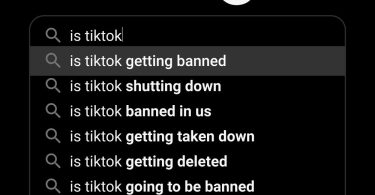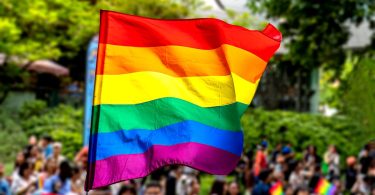When discrimination trumps health | Photo: Flickr/Nick J Webb
A new Human Rights Watch report reveals the staggering obstacles LGBTI people face in acquiring comprehensive healthcare in the United States.
The report, You Don’t Want Second Best, comes in anticipation of Donald Trump’s administration considering new regulations making the obstacles even greater.
In January, the Department of Health and Human Services (HHS) announced a new division specifically focused on religious freedom in healthcare.
Then, in April, Trump’s team announced a plan to roll back an Obama-era policy prohibiting healthcare providers from discriminating against gender identity.
HRW conducted 81 interviews with both patients and providers between August 2017 and July 2018. The report reveals the numerous difficulties LGBTI people already face — even before these two policies are possibly finalized. Here are six ways how.
1. Discrimination worsens health issues
LGBTI people face societal difficulties at a higher rate than their cisgender and heterosexual peers, whether it’s at school or work.
This discrimination, in turns, impacts their physical and mental well-being.
According to the report, a 2017 survey revealed ‘68.5 percent of LGBT people who experienced discrimination in the past year said it negatively affected their psychological well-being’. Another 43.7% said it had a bad effect on their physical well-being.
Discrimination doesn’t have to just be an individual experience, either.
Another report revealed states with ‘religious refusal laws’ saw a 46% increase in LGBT residents ‘reporting mental distress’.
2. Getting healthcare
LGBT people have a need for healthcare, just like anyone else, and at higher needs for certain things. Sometimes, however, there are difficulties getting healthcare at all.
It can be particularly hard when they have specific and personal needs.
18% of LGBT people believe if a hospital refused them, it would be ‘very difficult’ or ‘not possible’ to find an alternate solution. The number rose to 41% outside of major cities.
For almost a third of transgender people, they have to travel more than 25 miles for the care they need.
Finally, employment (or lack thereof) and financial difficulties also make maintaining healthcare a struggle.
3. Hostile doctors
When they do find hospitals or providers, they can face further discrimination there.
Another national survey from last year revealed 8% of LGB people and 29% of trans people said a provider refused to see them because of their sexual and/or gender identity.
KT Hiestand, a psychologist in Memphis, said: ‘You don’t know how many clients I get who call seeking information and when I call them back and say of course I can work with you on these issues, they tell me how many therapists didn’t call them back or just refused. It’s 2018. I kind of figured we’d be beyond this.’
If they did end up seeing a doctor, 9% of LGB people and 21% of trans people said they experienced ‘harsh or abusive language ‘ from the provider.
4. Specific needs
As stated before, LGBT people also have some healthcare needs their peers don’t. Addressing these specific needs can be even harder.
Like the daily anti-HIV medication, PrEP.
‘There are only two providers who’ll prescribe it—in a community this large,’ said a psychologist in Knoxville, Tennessee. ‘And the doctor we like, we overload him—we’re like, you have one option, and if you don’t have insurance, you’re pooched, because he’s expensive.’
Another issue is reproductive health. One lesbian couple in Mississippi, for example, couldn’t find an LGBT-friendly provider for a year. There were none in their area and when they found one in Alabama, the clinic said they only treated heterosexual married couples.
5. Lack of training and knowledge
These specific needs also mean providers need to have the necessary knowledge their patients’ needs require.
Some schools now offer LGBT competency modules. In 2012, however, only 16% offered some and 52% offered none. This leaves providers unable to properly care for their patients to the best of their abilities — if they’re willing to at all.
6. Not seeking care
Finally, all of these difficulties and more sometimes make LGBT reluctant to seek care in the first place.
The same aforementioned survey from 2017 revealed people who faced discrimination by providers were six times more likely to avoid going to a doctor in the future.
Other studies shows lesbian and bisexual women, ‘particularly those who are gender non-conforming’, seek out less gynelogical care.
The HRW report ultimately ends with recommendations to various government divisions, including Congress, the Justice Department, Department of Health and Human Services, and state legislatures.







